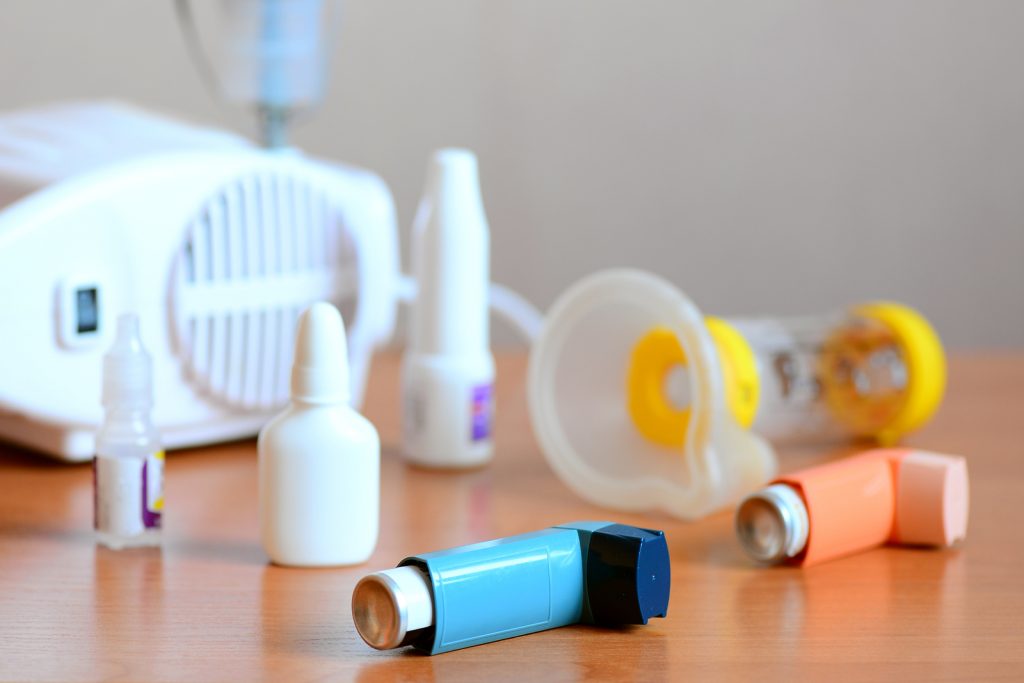Asthma varies over time and from person to person. What works for one person may not work for you. That is why your asthma care must be personalised.
Respiratory infections, a common asthma trigger, often require a change to asthma treatment. You may find yourself making medication changes on your own and wondering if you’ve made the right decision. Talk to your doctor now about the specific steps you should take when you are having asthma symptoms. What works for one person with asthma may not work for you. It is very important first to gain a full understanding of all your choices and then to obtain guidance from your doctor on the appropriate steps to take.
What is an Asthma Action Plan?
An Asthma Action Plan is a series of steps that you can use to manage your asthma when it gets out of control.
Why use an Asthma Action Plan?
Research has shown that having written agreement with your doctor is very helpful when managing asthma at home. The aim of an Asthma Action Plan is to recognize the early warning signs of asthma and to take the appropriate steps. It helps you: take control of your asthma, know when to increase or decrease your medications so that your asthma is well-controlled, decide when you should seek emergency help.
How do I get a customised Asthma Action Plan?
Read through the details outlined in the example Asthma Action Plan below and discuss it with your doctor.
Green Zone – I have symptom-free asthma
I have no symptoms:
- I have no cough, wheeze, chest tightness or shortness of breath.
- I do not cough or wheeze when I exercise or sleep.
- I can do all my usual activities.
- I do not need to take days off work.
To remain symptom-free, I need to take these controller medications every day
Medication How much to take When to take it
Yellow Zone – I have asthma symptoms
- I cough, wheeze, have chest tightness or shortness of breath during the day, when I exercise, or sleep.
- I feel like I am getting a cold or the flu.
- I need to use my reliever inhaler more than three times a week for my asthma symptom.
I need to either increase my controller medication or add on a different controller
First > Take ____ 2 puffs, every ____ hours, as needed. (Reliever)
Second > Increase ____ to ____ day, for ____ days, or until you are back in the green zone. (Controller)
If no improvement in ____ hours, call or visit your Doctor
Red Zone – I am in danger and need help
Any of the following:
- I have been in the Yellow Zone for 24 hours
- My asthma symptoms are getting worse
- My reliever does not seem to be helping
- I can not do any type of activity
- I am having trouble walking or talking
- I feel faint or dizzy
- I have blue lips or fingernails
- I am frightened
- This attack came on suddenly
Go directly to the nearest Emergency Room of your local hospital
First > This is an emergency. Dial 999.
Second > While waiting for the ambulance, take two puffs of every 10 minutes. (Reliever inhaler)
Forest Medical Equipment Calibration
Spirometry is a breathing or ‘lung function’ test. It’s one of the most common tests people with asthma, or people who are being tested for asthma, are given. Your GP or asthma nurse will ask you to take a deep breath and then breathe out as fast as you can and for as long as you can through a mouthpiece linked to a ‘spirometer’. You will have to blow a few times so your GP or asthma nurse can get an accurate result.
Once they have an accurate result, you may then be given a bronchodilator (reliever) medicine to open up your airways and asked to wait 15-20 minutes. You will then need to blow into the machine a few times again. This is to see whether there’s a big change in your airways after taking the medicine. If they become much less narrow, it could be a sign that you have asthma.
As with all medical equipment, Spirometers need thorough and comprehensive testing on a regular basis. Failure to adequately test a Spirometer puts it at risk of failure or of false readings being displayed from the equipment, which can have disastrous results.
We undertake thorough Medical Equipment Calibration to fully test your machines and ensure that they are safe and suitable for use. In one visit, our fully trained engineers can quickly yet thoroughly test and calibrate all of your equipment. Once all tests and calibrations have been completed, you’ll receive a full results pack, allowing you to claim 3 QOF points and satisfy your CQC requirements. We will beat any genuine quotation by at least 15% and can promise you that all testing carried out will be accurate and will ensure that your Spirometer is entirely accurate in the readings that it takes.

